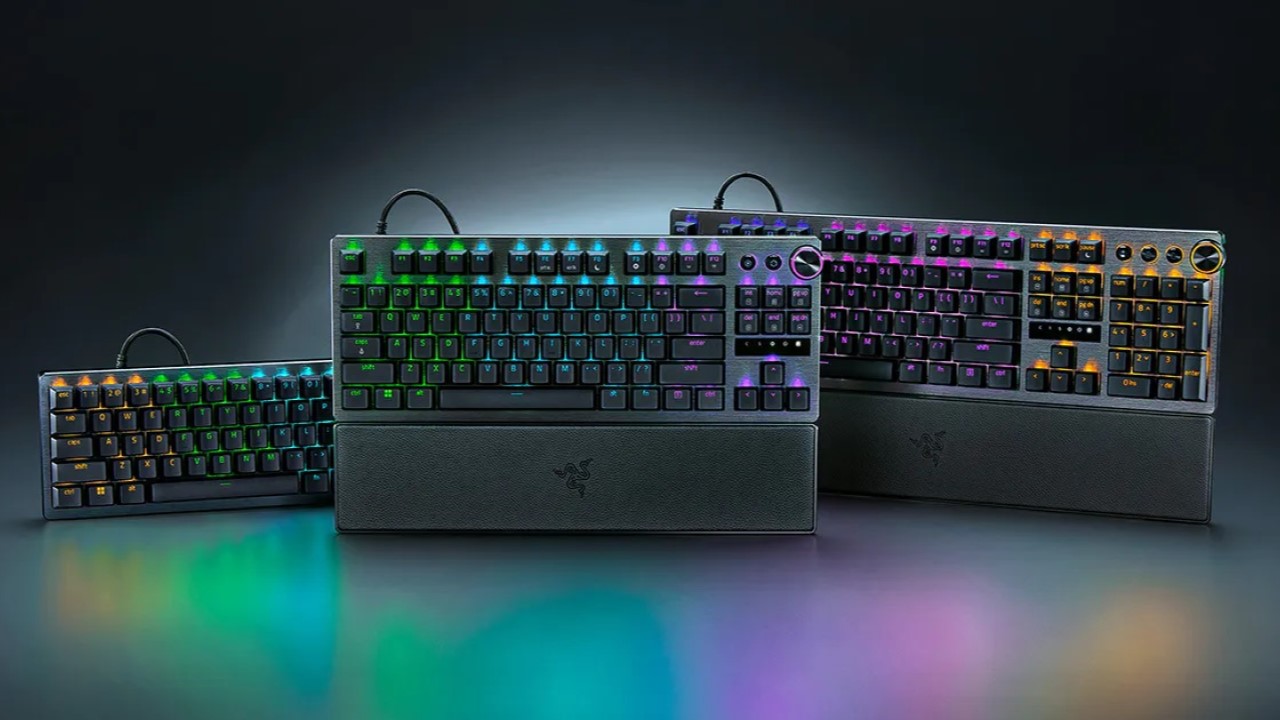Razer's latest gaming keyboard feature is now banned in CS:2
Snap Tap's out

Disclaimer
Update 07:21am ET: This article has been updated with Razer's official statement.
Valve has banned the use of automated dual-movements in Counter Strike 2, kicking brand new features from Razer and Wooting keyboards to the curb. Both decks offer a speedy way to swap direction while strafing, allowing one direction to override the previous in order to avoid that split second of inertia when both keys may be pressed at the same time. This hasn't come out of the blue, though, there's been talk of null binds and other scripting workarounds being banned for some time, but now that some of the best gaming keyboards feature built-in hardware bindings things are getting serious.
Valve shared its news via a Steam blog post, stating that "we are no longer going to allow automation (via scripting or hardware) that circumvent... core skills and, moving forward, (and initially--exclusively on Valve Official Servers) players suspected of automating multiple player actions from a single game input may be kicked from their match."
Earlier this month, FACEIT decided to ban null binds (a separate script that prevents multiple keys being pressed at the same time) from its ESEA/ESL platform (though the ban has been lifted from regular games). The policy now states that only "buy, toggle, weapon & grenade quick switching and jumpthrow scripts" remain free to use without penalty.
Hey Cooper, following discussions this weekend among ESEA staff, null binds are no longer allowed in ESEA matches, as per our scripts policy in the EPT rulebook: https://t.co/bICWhvm5Am pic.twitter.com/kmWBIPDALAJuly 29, 2024
Null binds have been contentious for a while now, but it wasn't until Razer launched its Huntsman V3 Pro devices in July that things started to heat up. The keyboard features Simultaneous Opposing Cardinal Directions technology (SOCD) branded as Snap Tap, with Wooting launching its own 'Snappy Tappy' technology in its new releases shortly after.
The feature removes the need for skill when rapidly changing strafe direction without wasting time pressing both directions at the same time (and therefore staying still). Previous iterations have, of course, been banned in professional play for some time, but with expensive hardware coming into the mix Valve wants to level the playing field for its everyday players as well.
Razer has since released a statement in response to Valve's decision, highlighting the fact that the SOCD feature is one that must be manually switched on by the player. The brand's full statement is available below.
"We have noted inquiries regarding the Razer Snap Tap feature on our Huntsman V3 Pro line of gaming keyboards. Razer Snap Tap is disabled by default. Users who opt to activate this feature can disable it any time through Razer Synapse or by using a simple hotkey combination, FN + Left Shift.
Sign up to the GamesRadar+ Newsletter
Weekly digests, tales from the communities you love, and more
Razer is committed to innovation that enhances gaming performance while also allowing gamers to comply with the rules of each game."
We're also rounding up all the best hot-swappable keyboards and best wireless gaming keyboards on the market. Or check out the best gaming mouse models up for grabs.

Managing Editor of Hardware at GamesRadar+, I originally landed in hardware at our sister site TechRadar before moving over to GamesRadar. In between, I've written for Tom’s Guide, Wireframe, The Indie Game Website and That Video Game Blog, covering everything from the PS5 launch to the Apple Pencil. Now, i'm focused on Nintendo Switch, gaming laptops (and the keyboards, headsets and mice that come with them), PS5, and trying to find the perfect projector.


